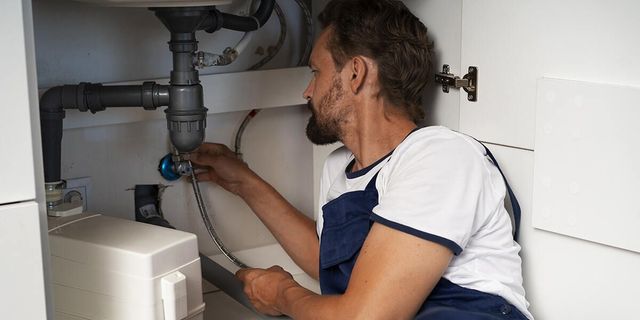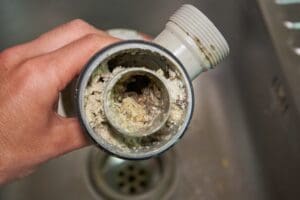My Complete Advice to Resolving Low Water Pressure in Your Home
My Complete Advice to Resolving Low Water Pressure in Your Home
Blog Article
Almost everyone may have their personal perception in relation to 4 Ways to Troubleshoot Low Water Pressure.

Low water stress in your house can be an aggravating issue, impacting every little thing from bathing to washing meals. If you're experiencing weak water flow, there are a number of possible reasons and services to check out. In this guide, we'll go over usual factors for low water stress and sensible actions to attend to the issue successfully.
Introduction to Low Tide Stress
Low water stress happens when the circulation of water from your taps, showers, and other components is weaker than normal. This can make everyday tasks more tough and less effective. Understanding the root causes of low water stress is vital to locating the appropriate remedy.
Common Root Causes Of Low Water Stress
Faulty Pressure Regulators
Stress regulatory authorities are in charge of preserving regular water stress in your home. If they malfunction, it can result in low water pressure or uneven flow throughout the house.
Municipal Water System Issues
Sometimes, the trouble lies outside your home. Metropolitan water supply issues, such as main line leakages or upkeep job, can temporarily lower water stress in your area.
Pipe Obstructions
In time, pipes can end up being blocked with mineral deposits, debris, or particles, restricting the flow of water. This is a typical concern in older homes with galvanized steel pipes.
Corrosion
Deterioration within pipes can cause leakages and minimized water stress. Rust accumulation can constrict water flow, specifically in aging plumbing systems.
Exactly How to Detect Low Tide Stress
Examining Pipelines
Inspect noticeable pipes for indications of leaks, corrosion, or blockages. Take notice of any type of unusual audios, such as banging or rattling pipes, which can indicate concerns within the plumbing system.
Consulting with a Plumber
If you're incapable to identify the cause of low water stress, think about working with an expert plumber to conduct a complete assessment. They can identify underlying issues and recommend ideal services.
Inspecting Taps and Components
Begin by examining the water pressure at different taps and fixtures throughout your home. If the concern is isolated to particular areas, it may show localized troubles.
DIY Solutions to Deal With Low Tide Pressure
Flushing Hot Water Heater
Sediment buildup in the hot water heater can restrict circulation and lower effectiveness. Flushing the container periodically aids get rid of debris and keep ideal efficiency.
Checking Pressure Regulator
Make sure that the pressure regulator is working appropriately. Changing or changing the regulator can help recover correct water pressure throughout your home.
Cleansing Aerators and Showerheads
Natural resources can build up in aerators and showerheads, decreasing water circulation. Get rid of and clean up these parts regularly to boost water pressure.
Clearing Clogs in Piping
For small clogs, try utilizing a plumbing snake or chemical drainpipe cleaner to clear blockages in pipes. Be cautious when utilizing chemicals and comply with security guidelines.
When to Call a Professional Plumber
If do it yourself efforts stop working to fix the issue or if you think significant plumbing issues, it's finest to seek assistance from a qualified plumber. They have the experience and devices to resolve complicated concerns securely and properly.
Safety Nets to Preserve Water Pressure
Setting Up a Stress Booster
Consider setting up a pressure booster pump to improve water pressure in locations with regularly reduced circulation. This can be specifically beneficial for multi-story homes or buildings with high-demand fixtures.
Monitoring Water Usage
Bear in mind water use behaviors and avoid ill-using the plumbing system. Easy changes, such as shocking showers and laundry loads, can aid keep adequate water pressure.
Normal Upkeep
Set up regular maintenance for your plumbing system to prevent concerns such as corrosion, leakages, and obstructions. Attending to small problems early can help prevent even more substantial repairs later on.
Verdict
Managing low water stress can be frustrating, but identifying the underlying causes and carrying out appropriate solutions can recover ideal flow throughout your home. Whether it's cleansing aerators, inspecting pipelines, or seeking advice from a plumber, taking proactive actions can ensure a steady supply of water for your everyday demands.
FOUR WAYS TO FIX LOW WATER PRESSURE NOW
Turning on a shower or faucet only to find the water comes out in a sad, slow drizzle is never a good feeling. How exactly are you supposed to wash a pan or take a quick shower when it takes 10 minutes just to rinse off a little soap? The good news is that when your water pressure is bad, there's always a cause: typically one that can be easily fixed. Here are some of the most common causes of low pressure and what you can do to fix the issue:
DEBRIS AND MINERAL DEPOSIT BUILDUPS
If you notice low water pressure from just one or two of the fixtures in your house, the problem likely has to do with debris buildup. Water is full of minerals and other debris, all of which can accumulate in your pipes and on your fixtures. This can cause a blockage that affects how much water flows through. To fix this, try filling a small plastic bag with white vinegar, and use a rubber band to hang it around your showerhead or faucet. Let the head of the fixture soak for a few hours, and the vinegar should loosen the deposits.
WATER LEAKS
Leaks are another common cause of low water pressure. If water is flowing out of your plumbing through a hole or crack before it can reach your fixture, the pressure coming out of the faucet or showerhead will be lower. A plumbing professional is your best bet for finding and repairing a leak in your water supply pipes.
Leaks are another common cause of low water pressure. If water is flowing out of your plumbing through a hole or crack before it can reach your fixture, the pressure coming out of the faucet or showerhead will be lower. A plumbing professional is your best bet for finding and repairing a leak in your water supply pipes.
A VALVE ISSUE
If you have low water pressure throughout your home, check your main shut-off valve to make sure it's completely open. You may also want to see if there's a pressure-reducing valve installed. If there is, have a plumber help you adjust the settings to get the pressure you're looking for.
OTHERS USING WATER
Believe it or not, your low water pressure could be caused by your neighbors. If you notice low pressure at certain times of day, it may be because you and the people living next to you have similar schedules - when everyone is showering at the same time, the pressure will be lower in every home. Low pressure throughout the neighborhood may also be caused by an issue with your municipal water supply. If that's the case, call the supplier to see if they're working on the issue.
https://www.rotorooter.com/blog/water-leaking/low-water-pressure-fixes/

As a keen person who reads about Low Water Pressure in the House?, I think sharing that piece of content was a good idea. Enjoyed our posting? Please share it. Help others discover it. Many thanks for your time. Don't forget to visit our website back soon.
Website Report this page